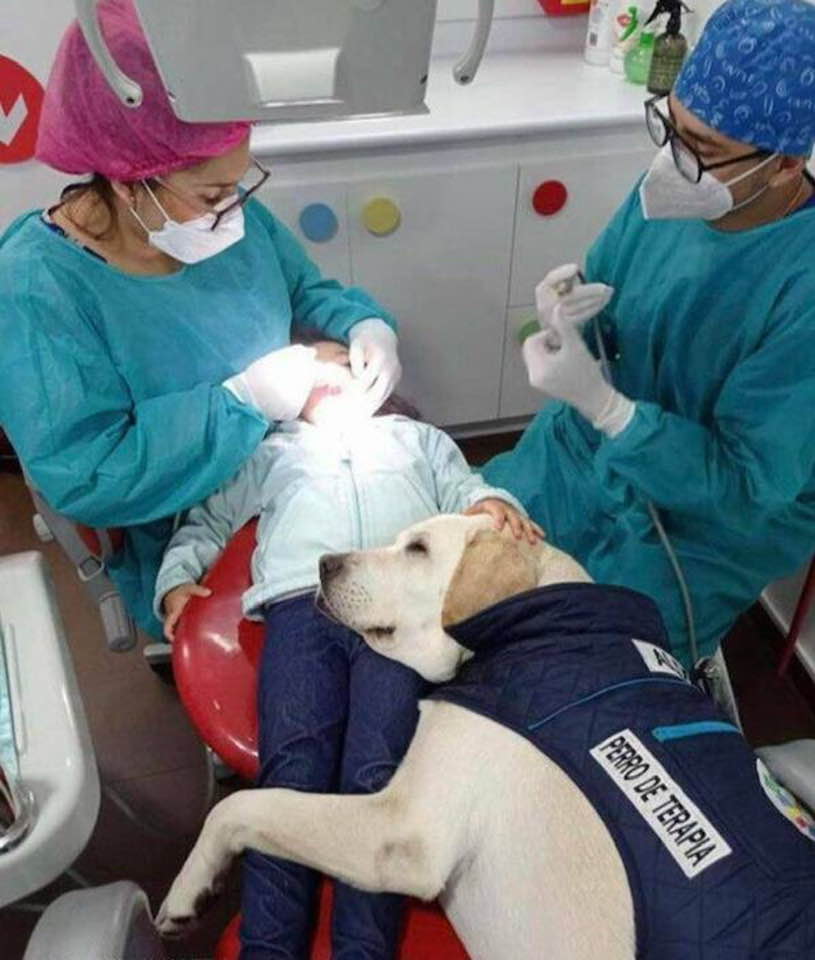Infant Frenectomy Near Me Bothell WA
Are you worried about your infant’s oral health and development? If so, you may want to consider an infant frenectomy. An infant frenectomy is a simple procedure that can help your baby achieve healthier oral habits and contribute to their lifelong well-being. While this routine procedure is relatively quick and easy, it’s important to find the right provider as trusting the wrong one could have devastating consequences on your baby’s development. Here, we will explore everything you need to know about infant frenectomies, from what they are to how they benefit infants and tips for finding a qualified provider for infant frenectomy near Bothell WA.
What is an Infant Frenectomy and Why Should Parents Consider One for Their Child
An infant frenectomy is a minor surgical procedure performed by a healthcare professional to correct an issue known as tongue-tie or lip-tie. These conditions occur when the frenulum, a small fold of tissue that prevents an organ in the body from moving too far, is either too short or thick. This can cause problems with the baby’s ability to feed effectively and may even have long-term implications for speech development.
By addressing tongue-tie or lip-tie early on through an infant frenectomy, healthcare providers can ensure that the baby is able to feed comfortably and effectively, promoting optimal growth and development. Moreover, this procedure has the potential to prevent future speech and dental issues, such as gap teeth or an incorrect bite, that may arise if the condition is left untreated.
It is important to note that an infant frenectomy is a safe and routine procedure that can greatly improve the quality of life for both the baby and their family. By providing a little more detail and understanding about this procedure, parents can make informed decisions about their child’s healthcare.

Infants Tongue and Lip Tie Treatment Bothell WA
How to Identify if an Infant Frenectomy is Needed
Identifying the need for an infant frenectomy involves carefully observing the baby’s feeding behaviors and looking out for various signs of discomfort. Babies with a tongue-tie or lip-tie often exhibit difficulty latching onto the breast or a bottle, leading to inefficient feeding, prolonged feeding sessions, and frequent breaks during feeding. Additionally, they may display signs of colic or reflux, fail to gain weight adequately, or appear frustrated and unhappy during feeding times.
When assessing the baby’s physical characteristics, it is worth noting any visible indications of a tongue-tie or lip-tie, such as a visibly short or tight frenulum, a tongue that appears heart-shaped or notched, or even a clicking noise during breastfeeding.
On the mother’s side, pain experienced during breastfeeding, damaged or sore nipples, mastitis, and low milk supply can potentially be indicative of a baby having a tongue-tie or lip-tie. It is crucial to pay attention to these signs and seek advice from a healthcare provider who can conduct a thorough assessment. They will be able to determine whether an infant frenectomy may be beneficial in addressing the underlying issues. Remember, early intervention is key in preventing potential speech and dental problems while contributing to the overall wellbeing of the baby. Taking these extra steps can provide added support and reassurance to both the baby and the mother.
Benefits of an Infant Frenectomy
An infant frenectomy provides numerous benefits that contribute to the overall well-being of your child.
- Improved Feeding: One of the main benefits of an infant frenectomy is improved feeding. A successful procedure can help your baby latch on more effectively, making feeding times more comfortable and less stressful for both mother and baby.
- Better Growth and Development: Adequate nutrition, which is facilitated by successful feeding, is crucial during this stage. A frenectomy ensures your child can feed effectively, promoting healthy growth and development.
- Prevention of Speech and Dental Issues: By correcting a tongue-tie or lip-tie early on, infant frenectomy can potentially help prevent future speech and dental issues such as difficulty articulating certain sounds or incorrect bite patterns.
- Promotes Comfort and Well-being: Addressing tongue-tie or lip-tie can also improve your baby’s comfort. Babies with these conditions may experience discomfort or frustration during feeding; a frenectomy can alleviate these issues.
- Supports Maternal Health: An infant frenectomy not only benefits the baby but also the mother. Effective latching can prevent nipple damage, mastitis, and other breastfeeding-related issues, promoting maternal health and well-being.
Given these benefits, an infant frenectomy can be a crucial step in ensuring the overall well-being of your baby and easing the transition into parenthood. However, as with any medical procedure, it’s vital to consult with a qualified healthcare provider to discuss any concerns and make an informed decision.
The Risks and Potential Complications Associated with an Infant Frenectomy
Like any surgical procedure, an infant frenectomy surgery carries certain risks and potential complications. Although they are relatively rare, it’s important for parents to be aware of them.
- Bleeding: Minimal bleeding is a common occurrence after the procedure, but excessive bleeding is a rare complication that may require additional medical attention.
- Infection: Any surgical procedure carries a risk of infection. However, good oral hygiene and following the post-procedure care instructions can help minimize this risk.
- Reattachment: There is a chance that the frenulum may reattach at the site of the cut, causing the tongue-tie or lip-tie condition to persist. If this happens, a repeat procedure may be necessary.
- Feeding Issues: Some babies may initially have difficulty adjusting to their new range of tongue movement, leading to temporary feeding issues.
- Speech Problems: While the procedure is intended to prevent speech issues, if not done right, it may lead to speech difficulties later in life.
It’s important to discuss these potential risks with your healthcare provider while considering an infant frenectomy. Remember, a well-informed decision is always the best route to take when it comes to the health and well-being of your child.

Tongue and Lip Tie Issues in Infants
Recovery Time and Post-Operative Care
The recovery period following an infant frenectomy is relatively brief. Most babies typically resume feeding almost immediately after the procedure, with no adverse impact on their feeding ability. In terms of discomfort, it’s common for the baby to be slightly irritable for a few days post-procedure, but severe pain is rare.
Regarding post-operative care, specific instructions should be provided by your healthcare provider. However, general practices often include:
- Oral Exercises: You may be advised to help your baby with certain oral exercises. These exercises are designed to promote healing and prevent reattachment of the frenulum at the site of the cut. Your healthcare provider will guide you on the right techniques and frequency of these exercises to ensure optimal healing.
- Pain Management: To alleviate any discomfort your baby may experience, over-the-counter pain medication may be recommended. It is important to use these medications only as directed by your healthcare provider. Additionally, a cold teething toy can also be used to soothe your baby’s discomfort and provide relief.
- Regular Check-ups: Follow-up appointments will be necessary to monitor the healing progress and evaluate the success of the frenectomy procedure. Attending all scheduled visits is important to ensure proper healing. During these appointments, you can discuss any concerns or questions you may have with your healthcare provider.
Remember, every baby is unique, and their response to the frenectomy procedure and recovery process may vary. It is crucial to consult with your healthcare provider and follow their advice for post-operative care. Observing your baby closely in the days following the procedure is essential, and promptly reporting any signs of infection or unusual behavior to your doctor is important for their well-being.
By providing proper care and following the guidance of your healthcare provider, you can help ensure a smooth recovery and positive outcome for your baby after their frenectomy procedure.
Tips for Finding a Qualified Healthcare Provider
Seeking a highly qualified and experienced healthcare provider to perform an infant frenectomy is an essential step in ensuring a safe and effective procedure for your little one. Here are some detailed tips to guide you through this important process:
- Referrals and Recommendations: Start by seeking referrals from your trusted pediatrician or lactation consultant. They often have a network of reliable specialists who can provide the necessary care. Additionally, personal recommendations from friends or family who have had positive experiences can be invaluable.
- Online Research: Utilize the power of the internet to your advantage. Take the time to search for reviews and ratings of healthcare providers specializing in infant frenectomies in your local area. Professional organization websites can also be helpful in identifying certified providers.
- Experience and Qualifications: It is crucial to ensure that the healthcare provider you choose has substantial experience in performing infant frenectomies. Don’t hesitate to inquire about their qualifications, including their training and certifications. Ask about the number of procedures they have successfully conducted and their track record of positive outcomes.
- Consultation: Schedule consultations with potential providers to further evaluate their expertise and suitability for your baby’s needs. During these consultations, pay attention to how well they explain the procedure, the associated risks and benefits, as well as the post-operative care instructions. A good provider should be able to address your concerns and answer your questions satisfactorily.
- Follow-up Care: Opt for a healthcare provider who offers comprehensive follow-up care. This should include closely monitoring your baby’s recovery progress, assessing the success of the frenectomy, and ensuring that there are no complications. Regular check-ups and support during the healing process are essential for the best possible outcome.
- Comfort Level: Trust your instincts and prioritize your comfort level with the healthcare provider. It is important to feel at ease and confident in their professionalism and communication style. Building trust and establishing a good rapport will contribute to a positive experience for both you and your baby.
Remember, the health and well-being of your precious little one are of utmost importance. Take your time and do not rush the process of choosing the right healthcare provider. Making an informed decision will provide you with peace of mind and ensure the best possible outcome for your child’s frenectomy procedure.

Infants Frenectomy Surgery
Questions to Ask Your Chosen Healthcare Provider Before Scheduling the Procedure
Before scheduling the infant frenectomy, ensure to ask your healthcare provider the following key questions:
- Procedure Details: Could you explain in detail how the procedure will be performed?
- Anesthesia: Will any form of anesthesia be used during the procedure? If yes, what kind?
- Experience: How many infant frenectomies have you performed?
- Success Rate: What is your success rate for this procedure?
- Post-Operative Care: What specific post-operative care will be required?
- Potential Risks and Complications: What are the potential risks and complications associated with this procedure?
- Signs of Complications: What are the signs of complications I should look out for post-operation?
- Recovery Time: Approximately how long will it take for my baby to fully recover?
- Feeding Post-Procedure: How soon can I feed my baby after the procedure?
By asking these questions, you will be able to get a comprehensive understanding of what to expect before, during, and after the procedure, helping you make an informed decision for your baby’s care.
Infant frenectomy procedures can be a daunting experience for parents. However, with the right information and guidance, it can be a safe and effective solution to alleviate breastfeeding difficulties or other potential issues caused by tongue-tie or lip-tie. Follow the recommended tips for finding a qualified healthcare provider and communicate openly with your chosen provider to ensure the best possible outcome for your baby. Remember, your baby’s well-being is the top priority, and by providing proper care and attention, you can help them recover quickly and comfortably. So don’t hesitate to seek professional help if needed, as it is ultimately for your child’s benefit. With patience and support, both you and your little one can overcome any challenges that may arise from a frenectomy procedure.


